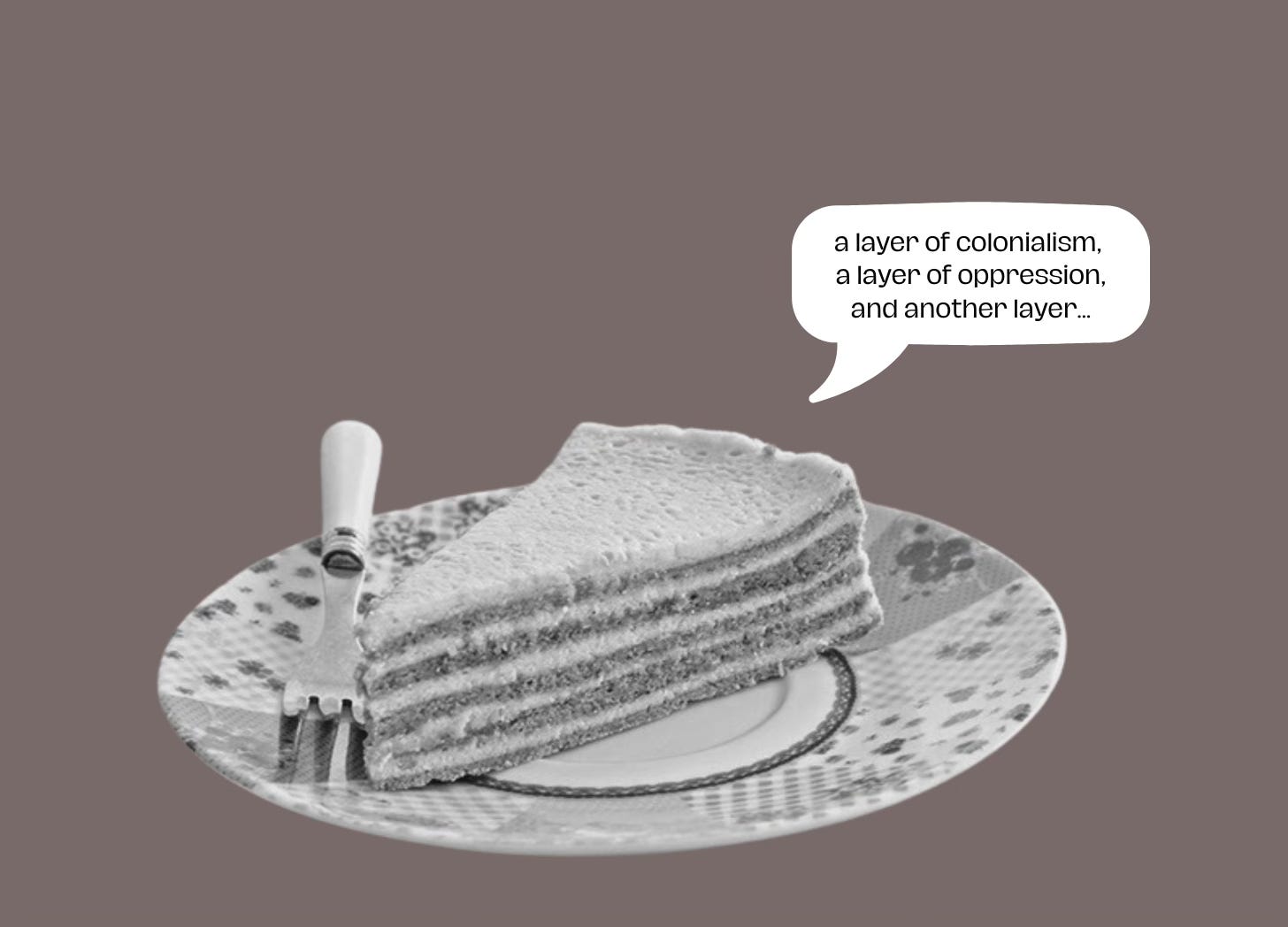A Flaky Situation
Layering the Indo Experience
Over the next few weeks, I’ll continue to write about my intersectional identities and how understanding intersectionality can help us pave a path toward a church that presents a more beautiful gospel.
In case you missed or want to re-read last week’s article introducing the topic, here.
Kamala Harris
Last week's cringe-worthy moment came when Donald Trump doubled down on his statement about how Kamala Harris "became black." Whatever Trump's intentions, his rhetoric betrays a fundamental misunderstanding of combined identities.
In my previous article, "White Jesus," I introduced the concept of intersectionality. For those who missed it, intersectionality is a framework for understanding how multiple aspects of a person's identity (e.g., gender, race, class, sexuality) combine to create unique modes of discrimination and privilege.
Kamala Harris embodies a complex intersection of identities. As a woman, she already faces significant challenges. Just today, I flew back home from Atlanta, and in our row, there was me in the window seat, another lady in the aisle seat, and a man in the middle. A man with his arms and legs spread out in such a way that I essentially had to squeeze myself to hug the window. If you’re a woman, you know exactly what I’m talking about. If you’re a man - well, why don’t you google manspreading to educate yourself?
Kamala Harris's identity is further layered, though. She is African-American, her father hailing from Jamaica. In case you’re wondering how black people ended up in Jamaica, it was a direct result of the West Atlantic Slave Trade, which forcibly transported people (primarily Akan) from West Africa to work on sugar plantations.
Additionally, Harris is South Asian. Her mother immigrated to America in the late 1950s from Chennai (formerly Madras). She came to the US to study nutrition and endocrinology at UC Berkeley, adding another dimension to Harris's multicultural background.
Trump and others seem to misunderstand that we're dealing with a trifecta of intersecting identities, each with its complex narrative. Harris navigates not only the misogyny that all women face but also the racism experienced by both Black and South Asian individuals in America. Moreover, both her parental lineages have histories marked by oppression through colonization.
The intersectional framework is important because it recognizes that a single identity does not define people. Instead, they are complex human beings with unique experiences shaped by the interplay of multiple identities. To reduce a person to a single aspect of their identity is to do them a profound disservice.
Keep reading with a 7-day free trial
Subscribe to Like Quiche to keep reading this post and get 7 days of free access to the full post archives.




